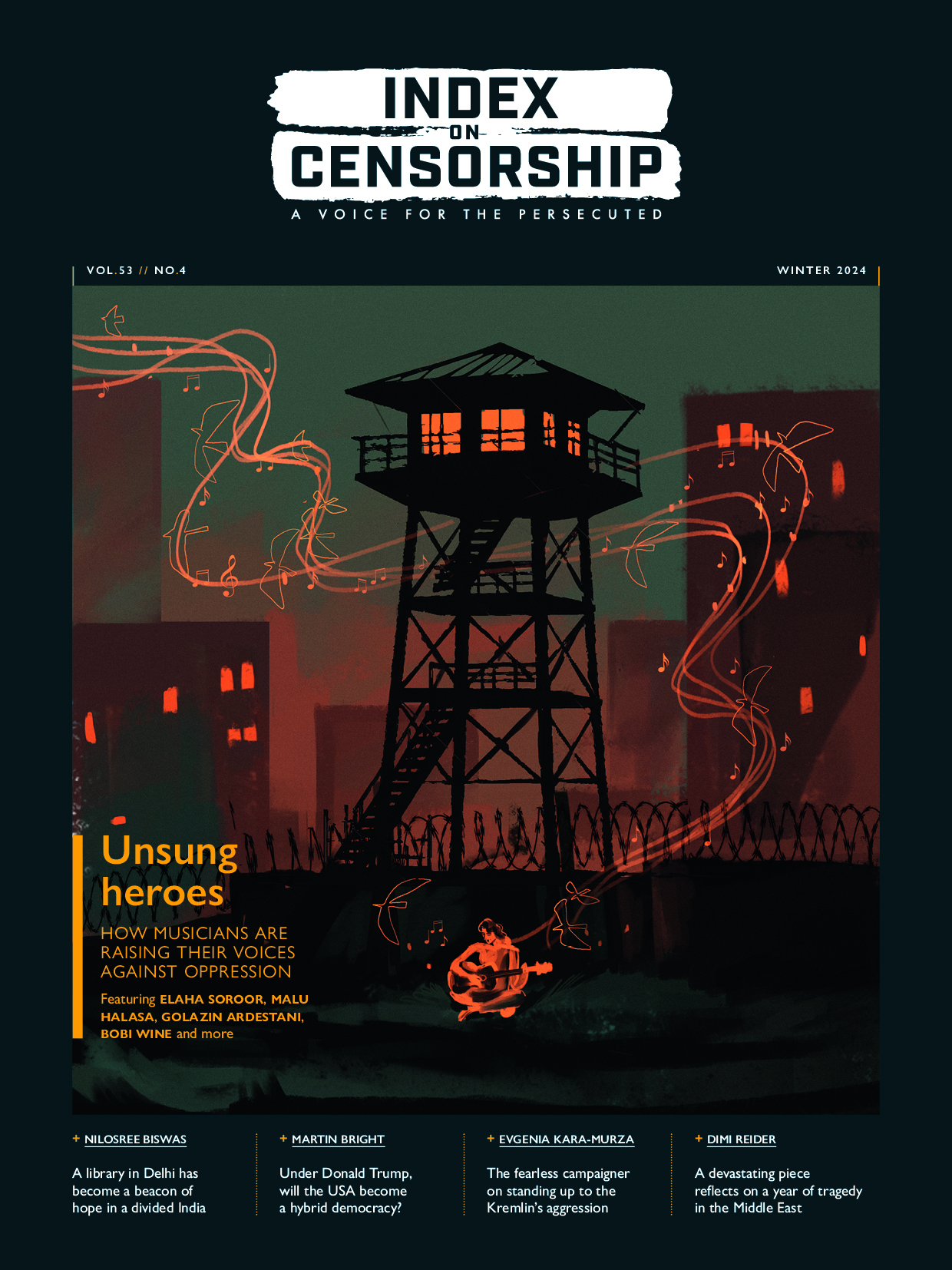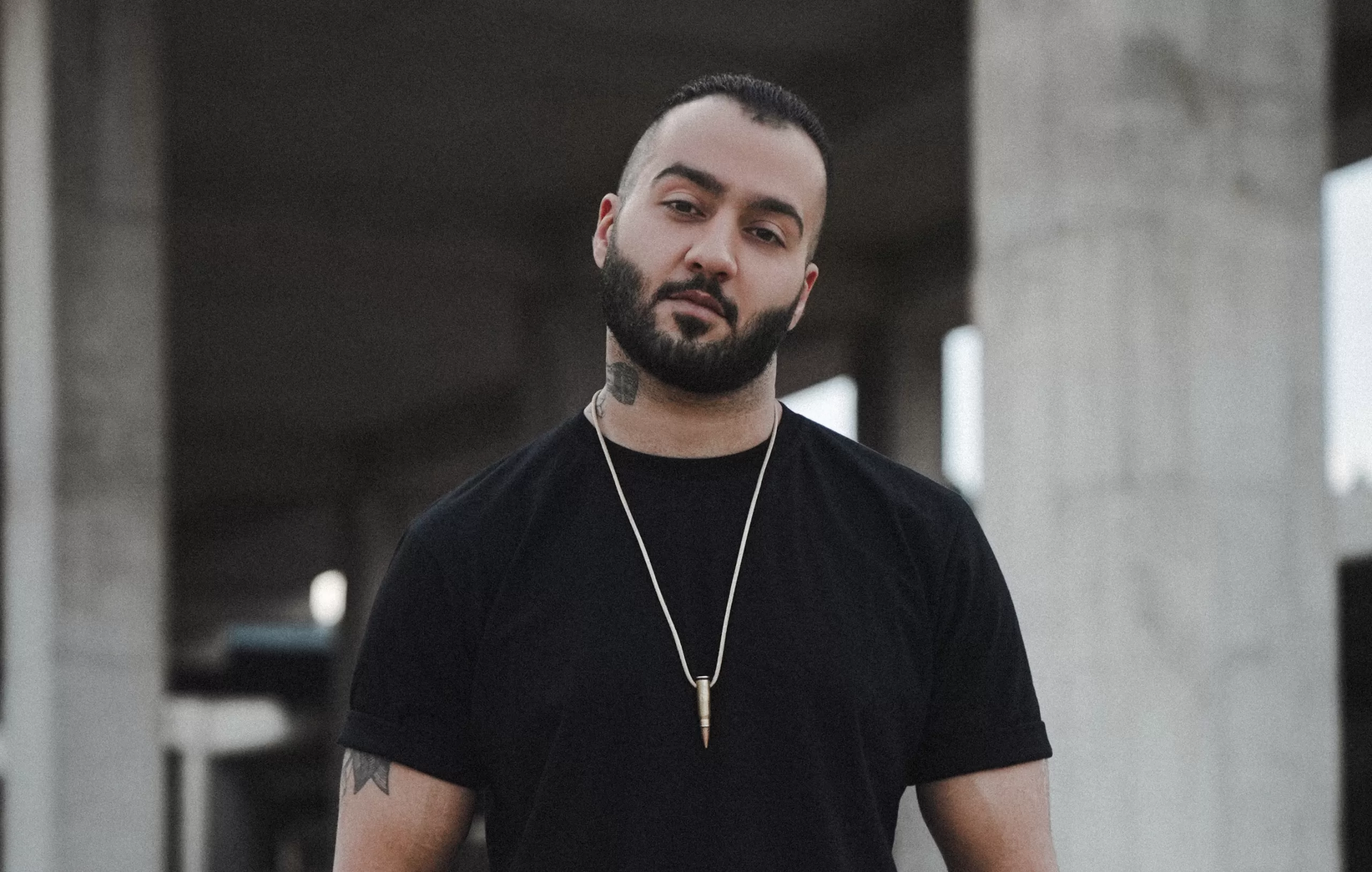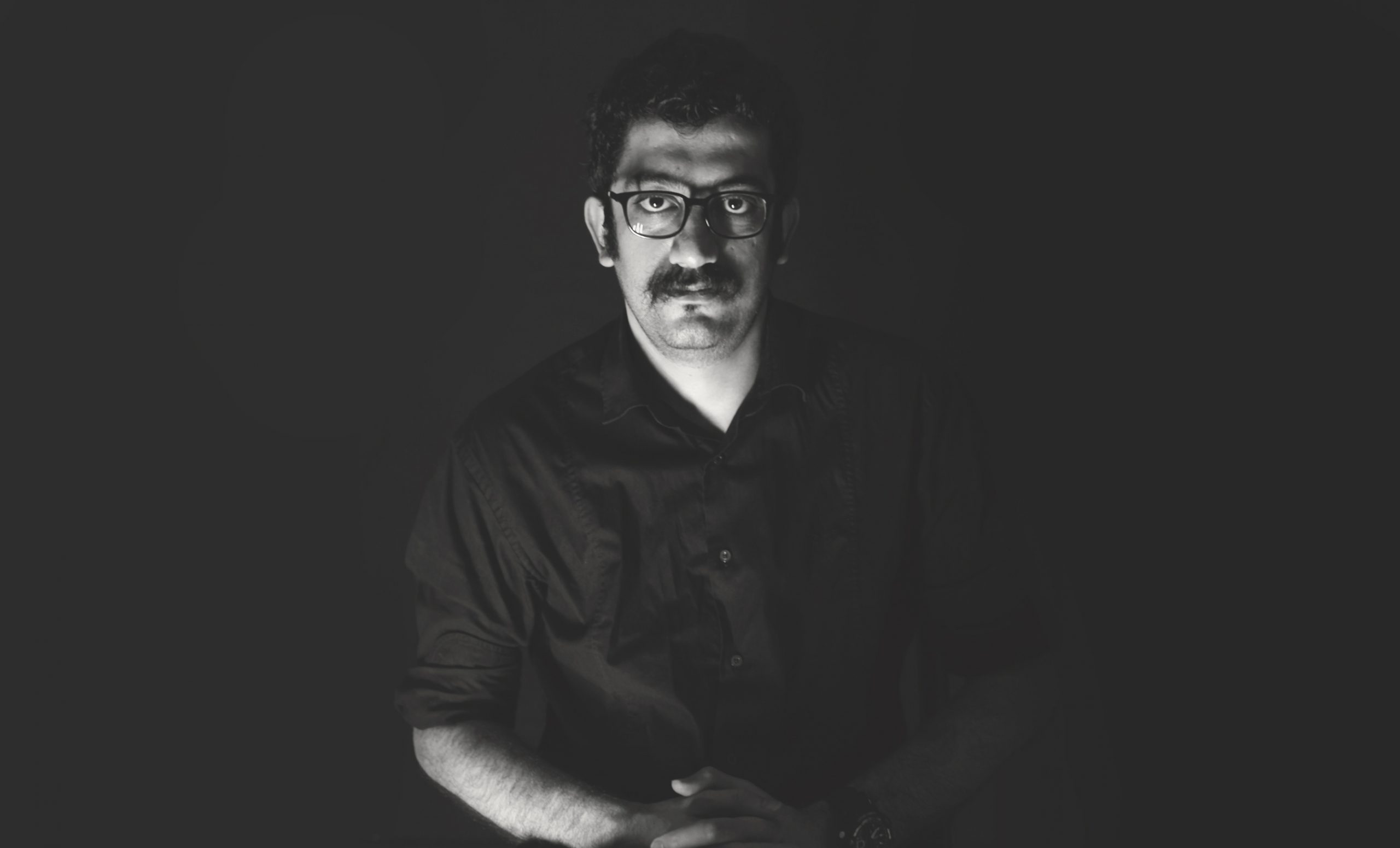This article first appeared in Volume 53, Issue 4 of our print edition of Index on Censorship, titled Unsung Heroes: How musicians are raising their voices against oppression. Read more about the issue here. The issue was published on 12 December 2024.
The recent passing of One Direction’s Liam Payne made me reflect on my first encounter with him during the filming of The X Factor in the autumn of 2010. The confident 17-year-old from Wolverhampton enthusiastically posed for pictures with my daughter before delivering a note-perfect performance on the show that night. There was no doubt in my mind that he had a golden career ahead of him.
In the spring of 2012, I found myself in a small, windowless room in the bowels of Cardiff City Football Club judging the first round of potential contestants for that year’s competition. During the day, I sat with an assistant producer on the show and ate a large jar of Haribo as we auditioned countless hopefuls. By the early evening, I never wanted to hear Rolling In the Deep again. A pain in my right shoulder had spread down my body and I felt like I was seizing up. When I saw the doctor the following day, she asked what my lifestyle was like. I explained that I had been to the USA twice that month, worked most evenings and drank coffee to power through the days.
“I can see it in your eyes,” she told me. “They are dull, you have no energy, the fire in your soul is out.” She prescribed immediate bed-rest and suggested I read The Presence Process by Michael Brown, a spiritual manual encouraging being present in the moment. I followed her advice, took some time off work and read the book. Four weeks later, I left my job running Columbia Records in the UK.
I had been working flat out in the music business for 25 years and was suffering from acute work-related stress, coming close to physical collapse. And yet I was incapable of doing anything about it until my body intervened on my behalf. As the head of a record label, I hadn’t recognised the symptoms of exhaustion and mental ill health in myself, and yet I was responsible for the wellbeing of both my staff and the artists on the roster.
My story was not uncommon in the music industry at the time. Whilst shows such as The X Factor had a duty of care to the contestants and employed a psychiatrist to help anyone with potential problems, the pressures on anyone following a career on the front line of popular music can very easily become too much to bear. The business frequently turned a blind eye to mental illness. If the talent could turn up and deliver then it wasn’t a problem. Signing a record deal with a major label can feel like answered prayers. Everything an act has worked towards has brought them to this point and finally they can devote their lives to making music.
No matter how much you anticipate making it in the music business, however, nothing can prepare you for the impact of fame. As Blur’s bass player Alex James put it recently: “Success will fuck you up far more than failure.”
The demands on the time of a successful artist are huge, and they are often on the go from early morning until the middle of the night if they are performing live or working in the studio. As a creative professional, they also carry the burden of relying upon their talent – which has got them this far – to take them to the next level. Their every move is being publicly scrutinised and any private life has evaporated. It is no surprise, then, that musicians frequently resort to stimulants to help them through the day, brimming with confidence, only to need something else to help them go to sleep. It is a potent and sometimes deadly cocktail.
The worst part is that you are supposed to be living the dream and any suggestion that your life is anything less than perfect feels like letting people down. For too long, the music industry ignored the pressures of work for artists and those behind the scenes across the business.
By 2017, I was running a major music publishing company and had a much better understanding of mental health than I had five years earlier. I was shocked to discover that a substantial proportion of our songwriters were suffering with psychological problems which prevented them from working. The stress of being able to consistently deliver hit songs takes an enormous toll and many writers simply couldn’t find a way forward. From that point onwards, we made the decision to include in our songwriter contracts a provision to access professional mental health care. The staff at the company were taught about the importance of looking after their own wellbeing and they had access to full healthcare if it was needed. We formed close relationships with mental health charities such as Music Support.
The music business in 2024 is very different from the one I joined in the mid-eighties and it has made huge strides in the field of mental health over the past 10 years. All the major music companies have professionals on the payroll, working with their staff and their artists. Particular attention is paid to young artists at the beginning of their careers as well as to those that are exiting the company and facing an uncertain future. There is a clear understanding of the need for personal time and breaks in the schedule to rest and recuperate. The brutal schedules of the past have been moderated. I am optimistic for the future as the new generation of executives coming through have a much greater understanding of wellbeing than I did when I was younger.
As a result, the artists and musicians in their care are finding themselves in a much kinder and safer environment. But sadly, it seems it was all too late for Liam Payne.
Read more of our music coverage
-

Joe Mulhall, Solá Akingbolá and Hanna Komar champion silenced musicians
Index on Censorship launches the latest issue of its magazine with a powerful night of poetry and music
-

Bobi Wine still standing up to oppression in Uganda, politically and musically
Yoweri Museveni’s most formidable challenger refuses to be silenced and remains on the frontline of protest
-

The war on drill
The police are disproportionately censoring and criminalising music by young Black men, with drill at the forefront
-

Contents – Unsung heroes: How musicians are raising their voices against oppression
Contents
-

Sting, Margaret Atwood, Elif Shafak and Coldplay join more than 100 artists, musicians, writers and leading cultural figures to call for the immediate and unconditional release of Iranian rapper Toomaj Salehi
Musician faces death sentence after three years of judicial harassment, including arrest, imprisonment and torture
-

Mehdi Rajabian’s Iran: where making music is a crime
Musician's inclusion of women's voices in his last album has led to his arrest. Here he talks exclusively to Index on Censorship about the challenges





